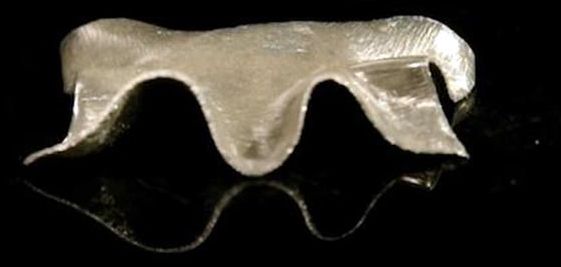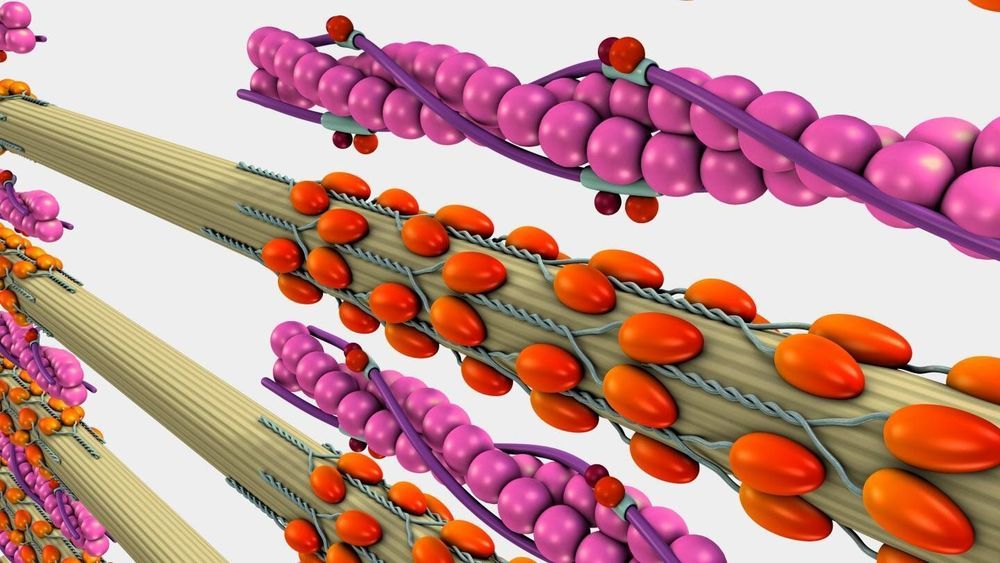AI is ready to become your new HR partner—Entrepreneur David Yang shows how Yva’s neural network helps companies retain and develop talent.




Advances in the fields of soft robotics, wearable technologies, and human/machine interfaces require a new class of stretchable materials that can change shape adaptively while relying only on portable electronics for power. Researchers at Carnegie Mellon University have developed such a material that exhibits a unique combination of high electrical and thermal conductivity with actuation capabilities that are unlike any other soft composite.
In findings published in Proceedings of the National Academy of Sciences this week, the researchers report on this intelligent new material that can adapt its shape in response to its environment. The paper is titled “A multifunctional shape-morphing elastomer with liquid metal inclusions.”
“It is not only thermally and electrically conductive, it is also intelligent,” said Carmel Majidi, an associate professor of mechanical engineering who directs the Soft Machines Lab at Carnegie Mellon. “Just like a human recoils when touching something hot or sharp, the material senses, processes, and responds to its environment without any external hardware. Because it has neural-like electrical pathways, it is one step closer to artificial nervous tissue.”

Outfield Technologies is a Cambridge-based agri-tech start-up company which uses drones and artificial intelligence, to help fruit growers maximise their harvest from orchard crops.
Outfield Technologies’ founders Jim McDougall and Oli Hilbourne have been working with Ph.D. student Tom Roddick from the Department’s Machine Intelligence Laboratory to develop their technology capabilities to be able to count the blossoms and apples on a tree via drones surveying enormous apple orchards.
“An accurate assessment of the blossom or estimation of the harvest allows growers to be more productive, sustainable and environmentally friendly”, explains Outfield’s commercial director Jim McDougall.

Are you ready for the future? A Transhumanist future? One where everyone around you—friends, family, and neighbors—has dipped into the transhumanist punch bowl. A future of contact lenses that see in the dark, endoskeleton attached artificial limbs that lift a half-ton, and brain chip implants that read your thoughts and instantly communicate them to others. Sound crazy? Indeed, it does. Nevertheless, it’s coming soon. Very soon. In fact, much of the technology already exists. Some of it’s being sold commercially at your local superstore or being tested in laboratories right now around the world.
We’ve all heard about driverless test cars on the roads and how doctors in France are replacing people’s hearts with permanent robotic ones, but did you know there’s already a multi-billion dollar market for brain wave reading headsets? Using electroencephalography (EEG) sensors that pick up and monitor brain activity, NeuroSky’s MindWave can attach to Google Glass and allow you to take a picture and post it to Facebook and Twitter just by thinking about it. Other headsets allow you to play video games on your iPhone just with your thoughts too. In fact, well over a year ago now, the first mind-to-mind communication took place. A researcher in India projected a thought to a colleague in France, and using their headsets, they understood each other. Telepathy went from science fiction to reality.
The history of transhumanism—the burgeoning field of science and radical tech used to describe robotic implants, prosthetics, and cyborg-like enhancements in the human being and its experience—has come a long way since scientists began throwing around the term a half century ago. What a difference a generation or two makes. Today a thriving pro-cyborg medical industry is setting the stage for trillion-dollar markets that will remake the human experience. Five million people in America suffer from Alzheimer’s, but a new surgery that involves installing brain implants is showing promise in restoring people’s memory and improving lives. The use of medical and microchip implants, whether in the brain or not, are expected to surge in the coming years. Some experts surmise as many as half of Americans will have implants by 2020. I already have one in my hand. It’s truly a new age for humans.

In an effort to make robots more effective and versatile teammates for Soldiers in combat, Army researchers are on a mission to understand the value of the molecular living functionality of muscle, and the fundamental mechanics that would need to be replicated in order to artificially achieve the capabilities arising from the proteins responsible for muscle contraction.
Bionanomotors, like myosins that move along actin networks, are responsible for most methods of motion in all life forms. Thus, the development of artificial nanomotors could be game-changing in the field of robotics research.
Researchers from the U.S. Army Combat Capabilities Development Command’s Army Research Laboratory have been looking to identify a design that would allow the artificial nanomotor to take advantage of Brownian motion, the property of particles to agitatedly move simply because they are warm.

Maybe interesting.
Few subjects in business and technology are causing as much interest and excitement – or fear and distrust – right now as artificial intelligence. Aalto Leaders’ Insight talked with Teemu Roos, Associate Professor at the Department of Computer Science, University of Helsinki, about a few common myths about AI.
Otso Alasko


Learn about the breakthroughs in AI that are helping drones “think” for themselves.

Shortly after publishing a paper demonstrating how its artificial intelligence programs could generate viable lead compounds in just a few weeks, Insilico Medicine has signed a dual-program discovery collaboration with Jiangsu Chia Tai Fenghai Pharmaceutical worth up to $200 million.
Focused on previously undruggable targets in triple-negative breast cancer, the deal includes an upfront payment along with potential milestones and sales-based royalties pegged to any eventual products.
“We are very pleased to establish the partnership with Insilico Medicine, entering the new era of AI-enabled drug development,” Wenyu Xia, general manager of the China-based pharma company, said in a statement. “We look forward to a long-term partnership with Insilico Medicine.”